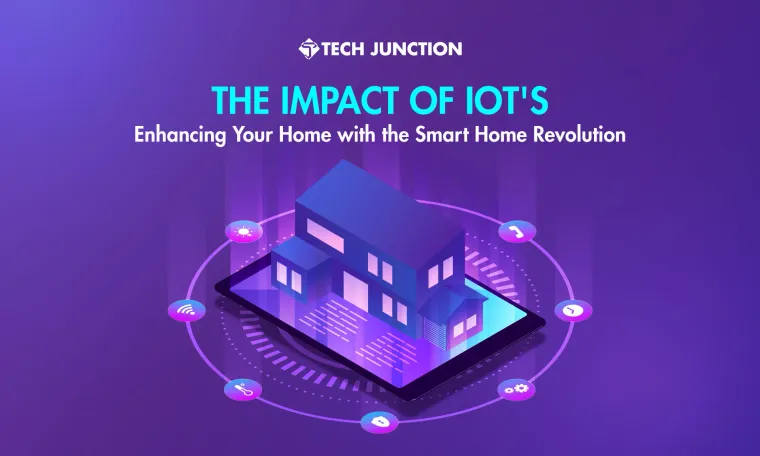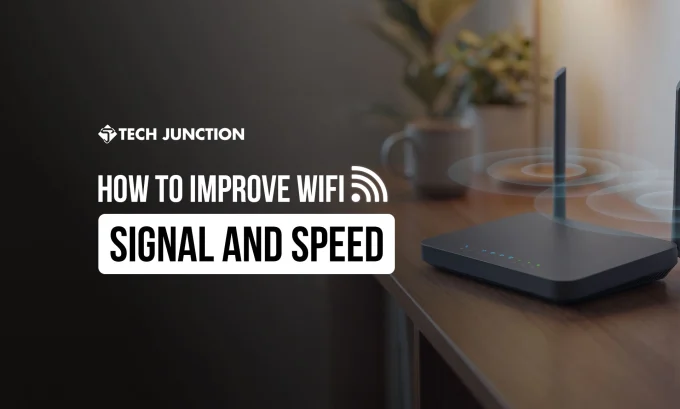Welcome to the Smart Home Revolution powered by the Internet of Things (IoT), where our homes have evolved into intelligent, connected spaces. IoT has woven its way into our daily lives, transforming how we interact with our living environments. From intuitive thermostats to security systems, you can monitor from your smartphone, the impact of smart home technology is profound.
In this blog, we will explore the multifaceted impact of smart home technology, from its societal implications to the environmental benefits it offers, finally answering the pressing question: how much does a smart home reduce your environmental impact?
What is IoT?
The Internet of Things (IoT) refers to a network of interconnected devices and systems that communicate and exchange data through the Internet. These devices are equipped with sensors, software, and connectivity, enabling them to collect and share information for improved functionality.
Smart homes are an integral part of the IoT on smart homes revolution, bringing innovation and connectivity to our living spaces. Imagine a home where your lights, thermostat, security system, and even kitchen appliances can communicate with each other and be controlled from the palm of your hand through a smartphone or a voice-activated assistant. This interconnectedness is made possible through the IoT.
The Impact of Smart Homes on Society
Beyond the comfort it offers, IoT on smart homes has ushered in a remarkable transformation that transcends mere convenience and extends deep into the fabric of society. As we explore the impact of smart homes on society, it becomes evident that the integration of smart home technology is shaping how we live, interact, and connect with our surroundings.
Let us explore the profound implications of this technological shift, revealing how it redefines our relationships with our homes and, ultimately, each other.
Improved Convenience and Comfort
The integration of IoT in smart homes has led to a transformative shift, enhancing convenience and comfort through automation. Residents can easily control various aspects of their homes using smartphones or voice commands, simplifying daily routines and creating a sense of luxury.
A notable example is the Nest Learning Thermostat, an innovative smart home device by Nest Labs, which optimizes comfort and energy efficiency by learning and adapting to user preferences. This technology, accessible through a mobile app, showcases the profound impact of smart home technology on how we interact with our living spaces, underscoring its significant influence on society by redefining our relationships with our homes.
Enhanced Security and Safety
The impact of smart homes on society is profound, with IoT-enabled smart home security systems that have redefined safety measures and well-being within our living spaces. Incorporating smart cameras, alarms, and automated locks contributes to a more secure living environment, instilling in homeowners a profound sense of peace of mind. These smart security systems offer advanced features like real-time video monitoring and motion detection alerts, empowering homeowners to keep a vigilant eye on their property even from a distance.
The Ring Alarm Security System by Ring is a prominent example of this advancement. The Ring Alarm seamlessly fuses IoT technology with security measures, showcasing real-time monitoring capabilities through smart cameras, motion sensors, and automated locks. This practical application of smart home technology in enhancing home security underscores its societal impact by redefining safety measures and well-being within our living spaces.
Related Article: Top 5 Smart Gadgets to Buy in 2024
Accessibility and Independence
IoT-powered devices have revolutionized smart homes, providing a powerful avenue for enhancing accessibility and independence, particularly for individuals with disabilities or elderly residents. Smart homes can be thoughtfully designed to be inclusive, regardless of abilities, incorporating features like voice-controlled devices, smart doorbells with video communication, and automated lighting.
One standout example in this domain is the Amazon Echo series. These devices, driven by Amazon’s AI assistant, Alexa, epitomize the potential of IoT-powered technology in tailoring solutions to specific needs and promoting self-sufficiency. The voice-controlled capabilities of the Amazon Echo empower individuals with disabilities or limited mobility to effortlessly interact with their homes, from adjusting lighting to setting reminders and engaging in video calls—all through simple voice commands.
Environmental Impact of Smart Homes
IoT on smart homes profoundly impacts the environment, offering innovative solutions to reduce energy consumption and promote sustainability. From reducing energy consumption to efficient resource management, let us explore how smart home technology shapes a sustainable and eco-friendly lifestyle, highlighting the broader environmental impact of smart home technology.
Reduction in Energy Consumption
IoT on smart homes significantly reduces energy consumption by efficiently regulating lighting, heating, and cooling. Automated systems adjust settings based on occupancy and external factors, leading to lower energy usage and a decreased reliance on fossil fuels.
Reducing energy consumption is a vital environmental impact of smart homes in creating a sustainable future. Smart homes achieve this through automation and optimized energy usage, ultimately lowering the demand for energy production and reducing the overall carbon footprint.
Lower Carbon Footprint
Reduced energy consumption in smart homes leads to a lower carbon footprint, curbing carbon dioxide and greenhouse gas emissions for a more sustainable living environment. This reduction is vital in combating climate change, and the environmental impact of smart homes is significant. Smart homes, with their energy-efficient practices and integration of renewable sources, play a significant role in achieving this goal.
An example of this is a family utilizing solar energy and optimizing energy use in their smart home, effectively showcasing how these innovations aid in the battle against climate change and contribute to the impact of smart home technology on environmental sustainability.
Resource Management for Sustainable Living
Smart homes utilize IoT technology for efficient resource management. Water-saving devices, for instance, monitor and control water usage, reducing wastage and eventually contributing to the environmental impact of smart homes. This efficient resource management, essential for sustainability, encompasses responsible usage, such as reducing waste, highlighting the impact of smart home technology on fostering a greener and more environmentally friendly lifestyle.
Beyond water conservation, a smart home optimizes energy consumption, controlling heating, cooling, and lighting based on occupancy and preferences, highlighting the impact of smart home technology on fostering a more sustainable lifestyle.
How Much Does a Smart Home Reduce Your Environmental Impact?
In the quest for a more sustainable future, smart homes have emerged as a powerful tool in mitigating environmental impact. This section explores the profound effects of IoT on smart homes and how they contribute to a greener lifestyle.
Energy Savings Calculation
Utilizing IoT on smart homes, energy consumption can be reduced by an impressive 30% through efficient management and automation. This significant reduction translates to substantial energy savings and a noteworthy decrease in greenhouse gas emissions, underscoring the environmental impact of smart homes.
Moreover, the advantages extend to economic benefits for homeowners, who experience reduced energy bills, demonstrating the dual impact of smart home technology and environmental sustainability.
Water Conservation Evaluation
IoT on smart homes has revolutionized water management, leading to a noteworthy reduction of water usage by approximately 20-30% through water-saving devices like smart faucets and aerators, smart showerheads, smart toilets, etc. This reduction in water consumption is a crucial step towards conserving this precious resource and showcases the positive environmental impact of smart homes.
Conserving water is of paramount importance, particularly in regions confronting water scarcity. By implementing smart home technology, water-saving devices like leak detection and prevention systems and smart irrigation systems have become integral in optimizing water usage without sacrificing comfort. This responsible use of water showcases the remarkable impact of smart home technology on resource conservation.
Waste Reduction Analysis
Implementing IoT on smart homes with automated waste management systems optimizes recycling and minimizes unnecessary consumption, leading to a notable reduction in household waste.
Bin-e is a pioneering smart waste bin integrated with AI and sensors, exemplifying the potential of IoT in smart homes. It autonomously sorts and compacts recyclables from general waste, promoting efficient recycling practices. This innovation by Bin-e showcases the transformative impact of smart home technology on waste reduction, aligning with a sustainable, circular economy approach.
Final Thoughts
The integration of IoT in smart homes has reshaped our lives by enhancing convenience, security, and sustainability. Beyond the individual benefits, smart homes have a positive environmental impact by reducing energy consumption, conserving water, and promoting sustainable living practices.
In conclusion, the impact of smart homes on society and the environment is more than just a technological advancement—it is a movement towards a greener, more efficient, and more connected future. By embracing this revolution, we can create homes that cater to our needs and preferences and contribute to a sustainable planet.
The Tech Junction is the ultimate hub for all things technology. Whether you’re a tech enthusiast or simply curious about the ever-evolving world of technology, this is your go-to portal.















